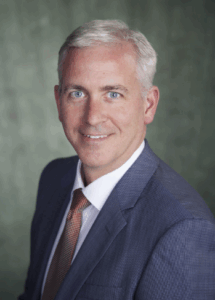 This is the third in the series of short statements from candidates in the coming CODATA Elections at the General Assembly to be held on 17-18 October 2025. David Castle is a candidate for the CODATA Executive Committee as an Ordinary Member. He was nominated by the World Data System Scientific Committee.
This is the third in the series of short statements from candidates in the coming CODATA Elections at the General Assembly to be held on 17-18 October 2025. David Castle is a candidate for the CODATA Executive Committee as an Ordinary Member. He was nominated by the World Data System Scientific Committee.
I am a Professor in the School of Public Administration at the University of Victoria, Canada. My area of expertise is in science, technology and innovation policy, and I have written about national and sub-national systems of research and innovation, as well as more specialized works on life science innovation. My current research program, called BIOSCAN, is a biodiversity genomics project that is part of the International Barcode of Life Consortium (iBOL). We work with open data supported by the Barcode of Life Data System (BOLD) to identify species, characterize their interactions, and study ecosystem dynamics.
For the last several years, I have spent most of my time working for the Chief Science Advisor to the Prime Minister of Canada. My portfolio includes open science, data governance, research security and biodiversity. I was part of the Canadian negotiating team at COP15 and was focused on access and benefits sharing related to digital sequence information (DSI) on genetic resources. I was on the Canadian delegation negotiating position on DSI for COP16 in Cali, Columbia, from which Decision 16.2 on DSI arose.
In addition academic and government work, I have contributed to OECD expert advisory groups on digital skills and mobilizing science in times of crises. I was a member of the expert advisory group for the Public Health Agency of Canada’s Pan-Canadian Health Data Strategy through which we created a national Health Data Charter embedded in our third report. I chair the Scientific Advisory Committee of the Council of Canadian Academies, and I recently joined the AI and Data Governance Standardization Collaborative of the Standards Council of Canada.
With this background one can probably surmise why I would be interested in a role on the Executive Comittee with CODATA. There is, however, one significant additional detail that explains my motivation for accepting the nomination for the position. I have been a member of, and now chair, the Scientific Committee of the World Data System. Last year we released our second Action Plan 2025-2027, which generated better alignment with the goals of the International Science Council, and established four objectives for the WDS:
- Provide services and support to existing and new members
- Develop value narratives for WDS members
- Provide global leadership and agenda setting
- Enhance access, quality and accessibility of data worldwide
These objectives align with priorities and activities CODATA, and it is for this reason that I accepted the nomination. We are often asked “why does the International Science Council need two affiliated data bodies?” The answer is as follows: there is more than enough work on data to keep both CODATA and WDS fully occupied; the two organizations are differentially specialized; and coordinating the activities of CODATA and WDS better supports the ISC in its mission. Coordinating, however, requires interaction and engagement, which is what I hope my participation on the Executive Committee will foster between the two organizations.
